AI in Healthcare: Smarter Decisions with Less Effort
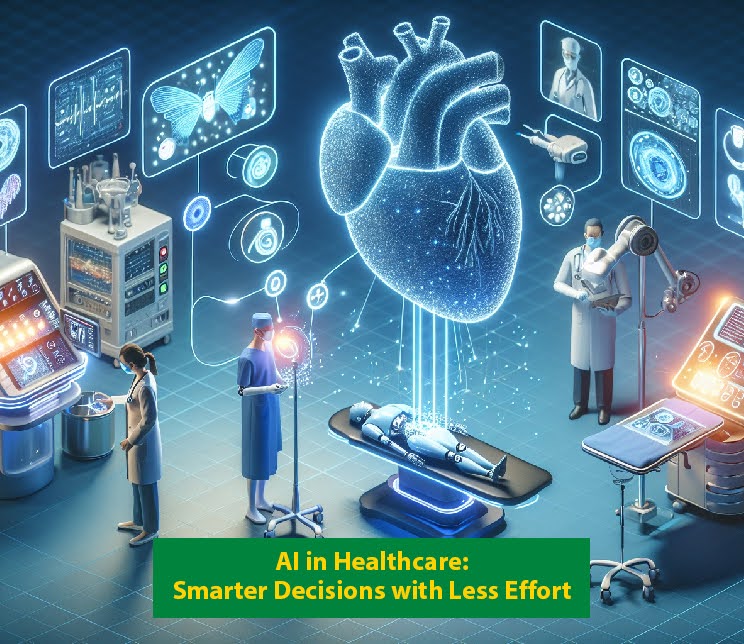
Introduction
Healthcare is changing fast, and Artificial Intelligence (AI) is leading the way. With growing patient needs and limited time for doctors, AI is a smart tool that helps solve big problems. It allows healthcare providers to make quicker and smarter decisions with less effort.
From disease detection to custom treatment plans, AI tools are saving time and improving results. What once required hours of manual effort can now be done in just a few minutes. we’ll show how AI is making healthcare better for everyone doctors, patients, and medical systems.
Summary
1. The Future Is Here: AI Is Transforming Healthcare
2. Smarter Diagnoses: Spotting What Humans Might Miss
3. Predictive Analytics: Stay Ahead of Illness
5. Virtual Assistants: A Helping Hand for All
6. Reducing the Load: Less Effort, More Focus
7. Smarter Surgery: Better Accuracy with AI Help
8. Greater Access: AI Bridges the Healthcare Gap
1. The Future Is Here: AI Is Transforming Healthcare
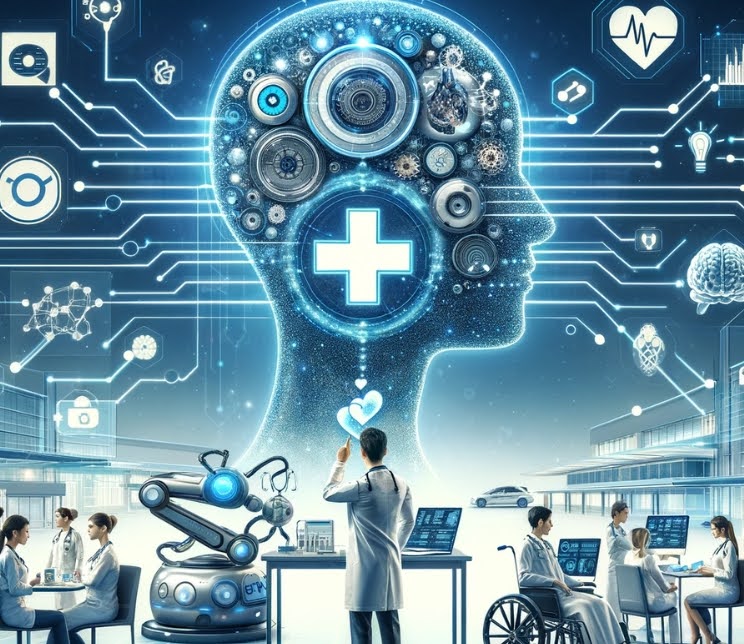
AI is no longer just a buzzword. It’s now a key part of how hospitals and clinics work. Doctors use AI to scan large amounts of patient data quickly. This helps them find the right treatments faster and with more accuracy.
It’s not just about speed. It’s about making smarter choices in less time. By reducing manual work, AI is giving doctors more time to focus on their patients.
2. Smarter Diagnoses: Spotting What Humans Might Miss

AI systems are very good at reading medical images like X-rays, MRIs, and CT scans. They can detect early signs of cancer or brain disorders—even when they’re too small for the human eye to catch.
These systems improve as they learn from more cases. This means doctors can trust AI for early and accurate results, giving patients a better chance of recovery. It also helps doctors spend more time on complex cases instead of routine checks.
3. Predictive Analytics: Stay Ahead of Illness
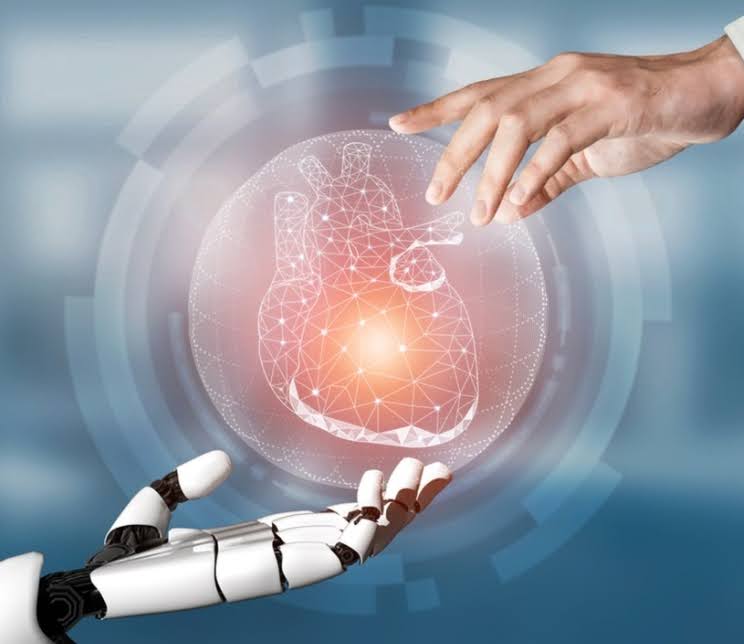
AI helps predict health issues before they become serious. AI can quickly find patterns and potential health risks by analyzing your medical history, family background, and lifestyle habits.
Hospitals use these tools to find out which patients are more likely to get sick. For example, AI can warn about a possible heart attack or diabetes. With this heads-up, doctors can act early and create plans that keep patients healthier.
4. Personalized Care: One Size Doesn’t Fit All
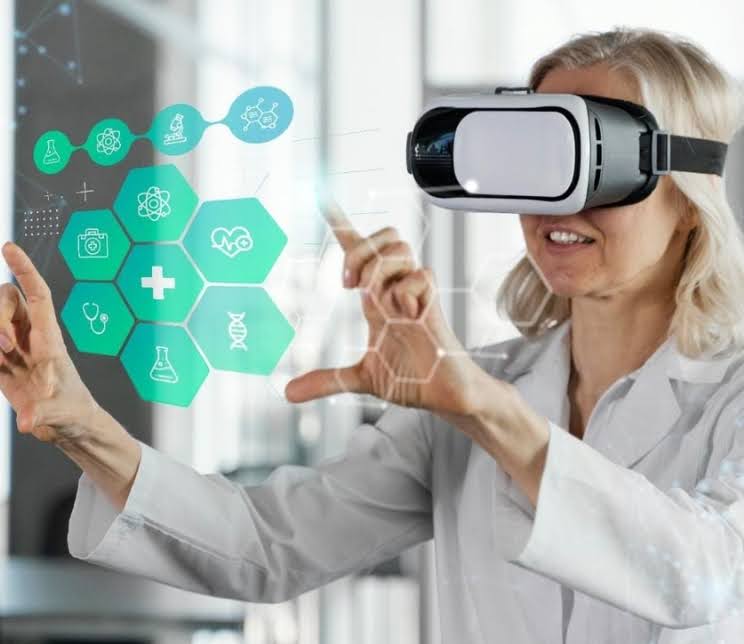
Everyone is different, and AI understands that. It looks at a person’s genes, lifestyle, and past treatments to recommend what works best for them.
This leads to better results with fewer side effects. If a medicine isn’t working, AI can suggest another option. Doctors get more guidance, and patients get care that fits their unique needs.
5. Virtual Assistants: A Helping Hand for All
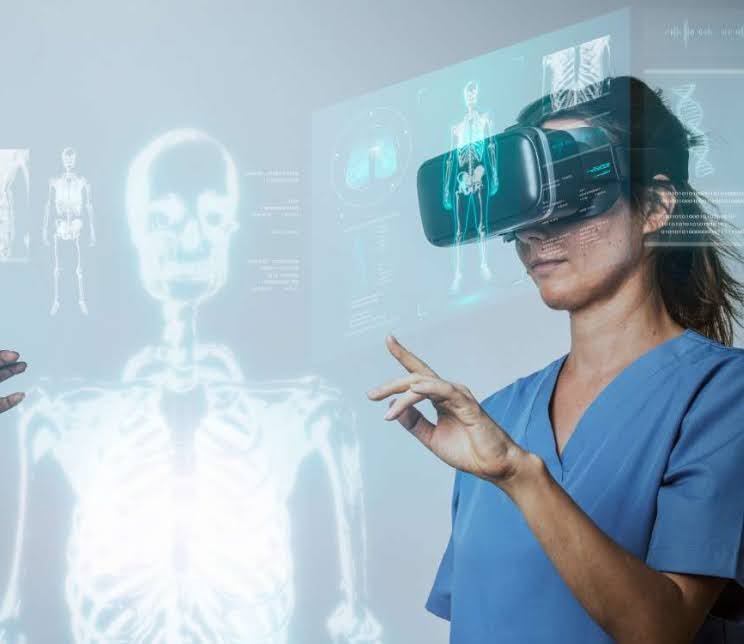
Hospitals are now using AI-powered virtual assistants to help with everyday tasks. These tools can schedule appointments, take notes, and suggest treatments.
For patients, virtual assistants can remind them to take their medicine or help them book follow-ups. These tools make life easier and reduce stress for both patients and doctors.
6. Reducing the Load: Less Effort, More Focus

Doctors and nurses have to manage a large amount of paperwork every day. AI can handle tasks like updating records, tracking vital signs, and filling out forms.
This saves time and allows healthcare workers to concentrate more on taking care of patients. With less admin work, doctors can make quicker decisions and offer better support.
7. Smarter Surgery: Better Accuracy with AI Help
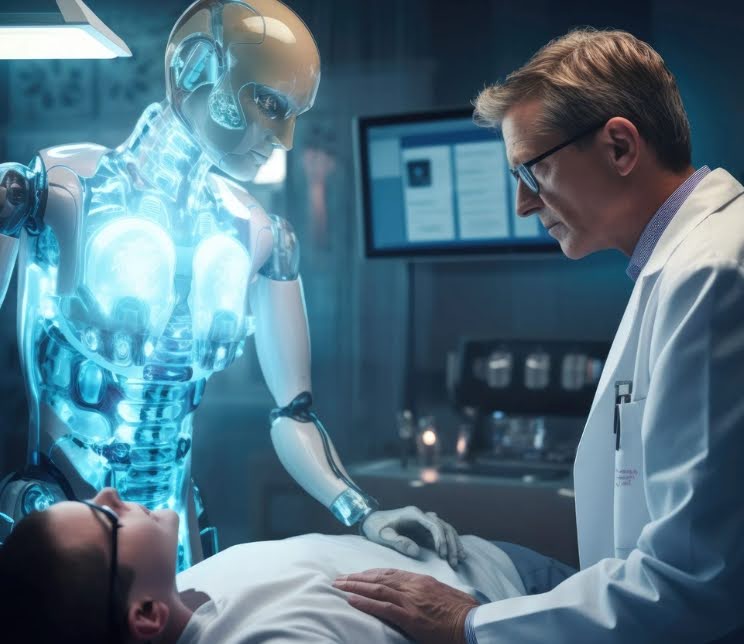
AI is now being used in operating rooms to support surgeries and improve outcomes. Robotic systems guided by AI allow surgeons to make smaller cuts and work with high accuracy. This leads to quicker healing and fewer risks.
AI also keeps an eye on the patient’s vital signs during surgery. It alerts doctors if anything unusual happens, making operations safer and smoother.
8. Greater Access: AI Bridges the Healthcare Gap
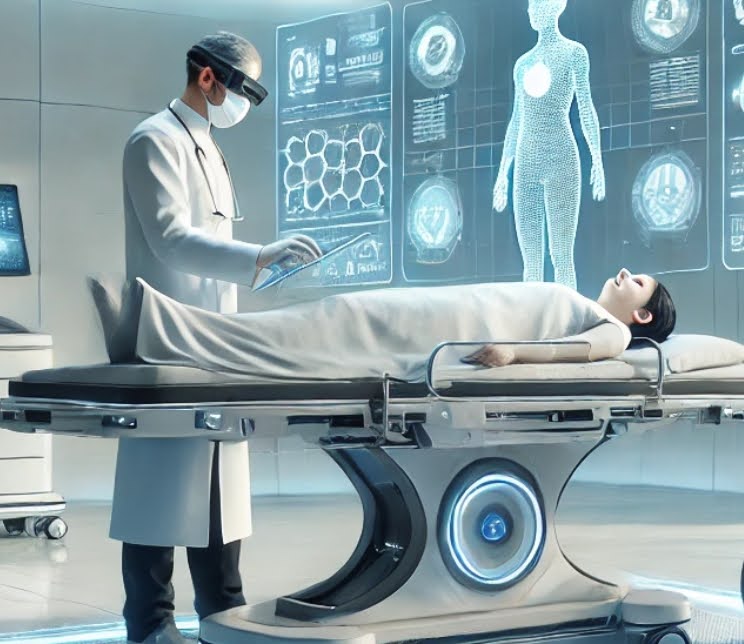
Not everyone can reach a hospital easily. But AI makes care more available through telemedicine. With just a phone and internet, people in remote areas can talk to a doctor and get help.
AI-powered translation tools also help doctors speak with patients who speak different languages. This improves understanding and builds trust between doctors and patients. AI is truly helping make healthcare smarter and easier to access, all with less effort.
Frequently Asked Questions:
Q1. What are the main benefits of using AI in healthcare?
A1. AI helps doctors make quicker and smarter decisions, improves diagnoses, and reduces their workload. It also allows for personalized treatments and better access to care.
Q2. Will AI take over doctors’ jobs?
A2. No. AI supports doctors by handling routine tasks. It helps them focus more on patients and important decisions, but doesn’t replace them.
Q3. Is AI used in surgeries?
A3. Yes. AI supports surgeries by improving accuracy, guiding robotic tools, and monitoring patient vitals. Surgeons stay in control while AI adds an extra layer of safety.
Q4. Can AI reduce healthcare costs?
A4. Yes. AI boosts efficiency, reduces mistakes, and helps identify diseases at an early stage. This reduces unnecessary treatments and lowers overall costs.
Q5. How does AI make healthcare more accessible?
A5. AI powers telemedicine and language tools, allowing patients in remote or underserved areas to connect with doctors more easily and receive quality care.
Conclusion:
AI is reshaping healthcare in exciting ways. It cuts down on manual work, supports smarter decisions, and brings care to more people. Doctors can diagnose faster, offer better treatments, and help more patients with less stress.
The future of healthcare is not just about machines—it’s about combining AI’s power with human care. Together, they make the system more efficient, more accurate, and more patient-friendly. When AI and compassion work side by side, better health outcomes follow—with less effort.
For additional information, please visit our website at https://srutatech.com or call us at (917) 503-1133. We’re here to help with any questions you might have!

